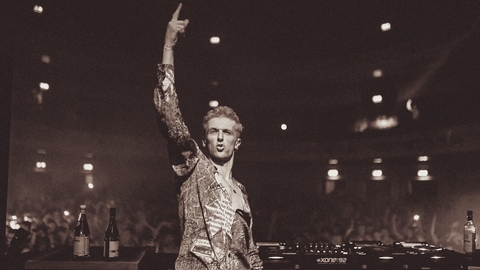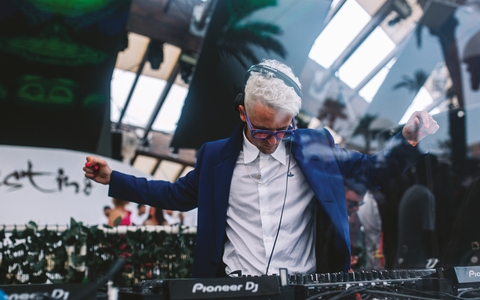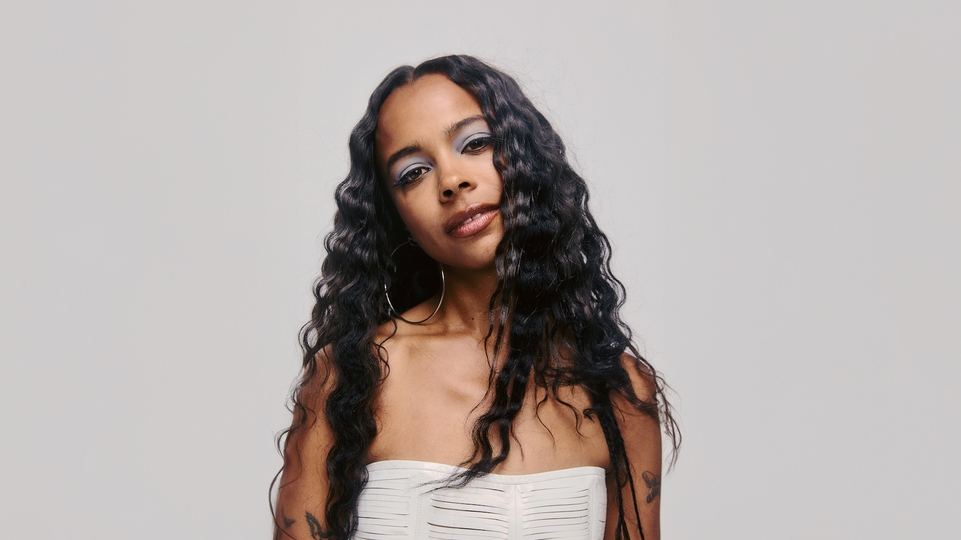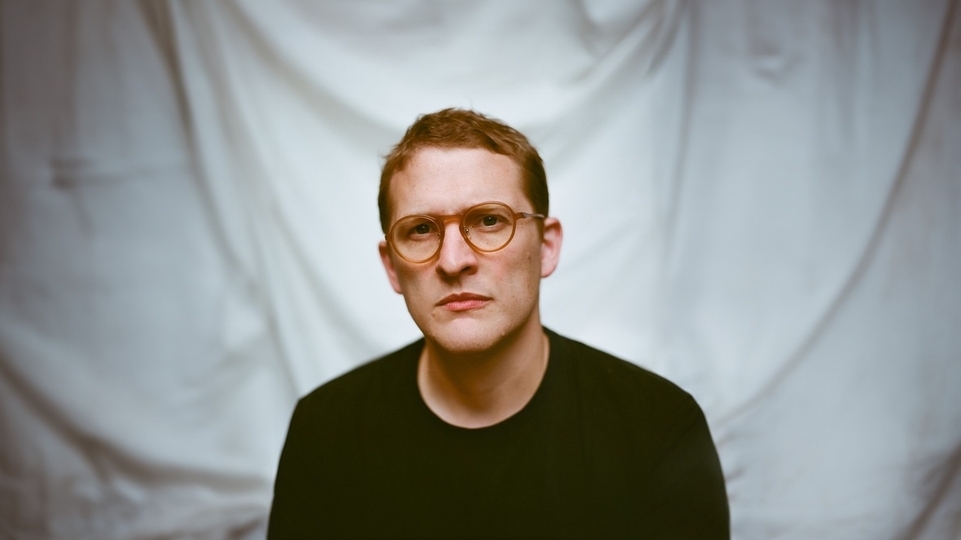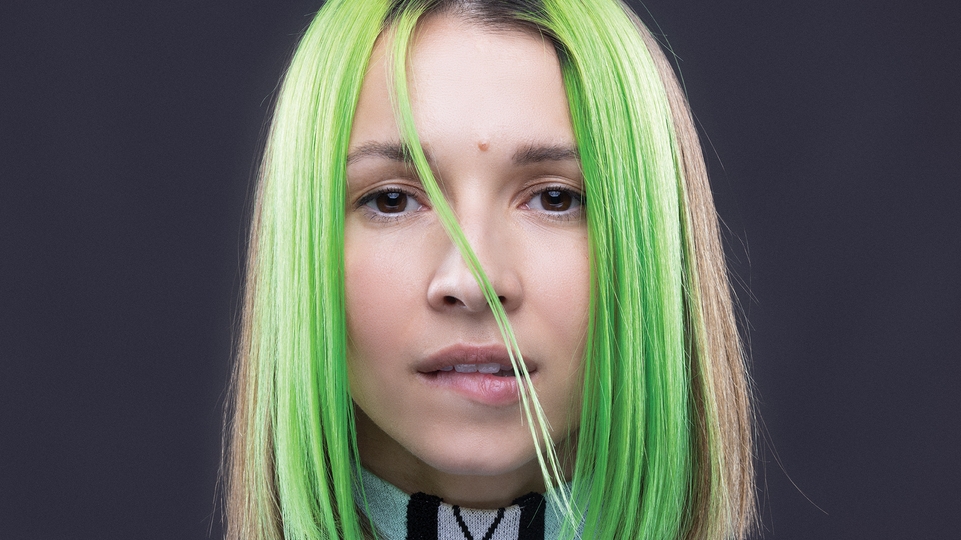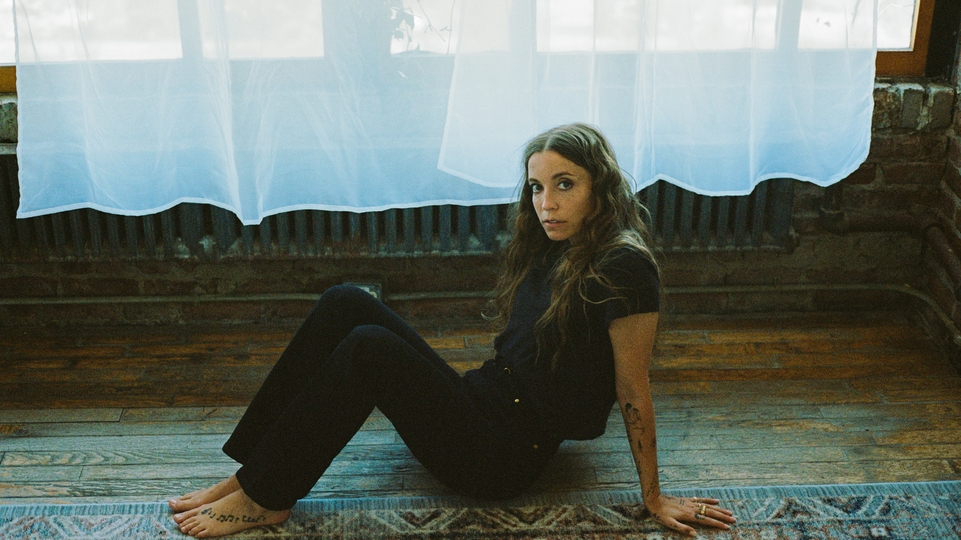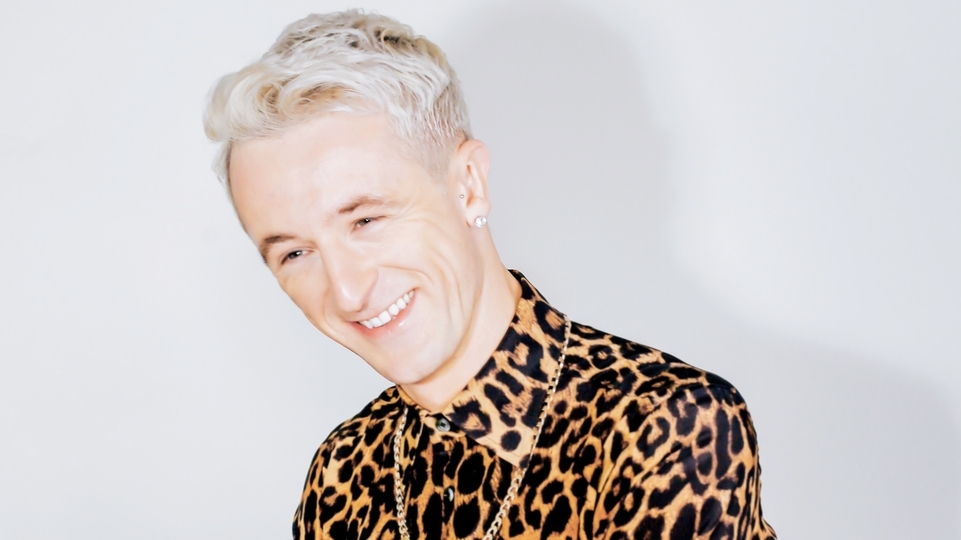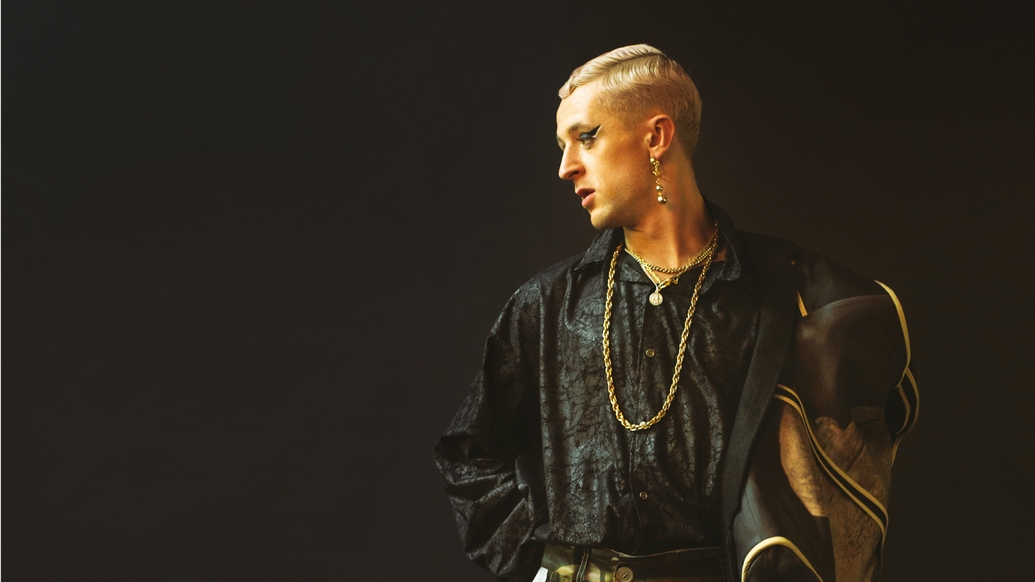
Denis Sulta: Got to be real
Denis Sulta is the flamboyant DJ who packs out enormous clubs around the world, famed for his subversive selections and image. But getting there has meant plenty of crushing lows as well as dizzying highs for the man behind the persona, Glasgow’s Hector Barbour. We meet him to talk about self-destruction, redemption, winning the Best Of British Best DJ award — and Vin Diesel
Hector Barbour is 17 years old and trying to get into a club for the first time. Queuing outside Glasgow’s Vic Bar, part of the city’s famous Art School, he couldn’t look more underage if he tried and is questioning the idea of trying to share his friend’s fake ID. Then, somehow, the bouncer gets distracted and he strolls in, towards the club’s distinctive black and white tiled dancefloor. The room is booming with UK dubstep, subby and strange. His friends start talking to girls, but his shyness keeps him on his own. His eyes stay on the DJ, directing everyone around him while standing on his own. It’s then he decides that’s who he’s going to be.
Less than a decade later, he is the 26-year-old known across the world as Denis Sulta: a producer and DJ whose ever-changing hair colour mirrors his equally colourful sets, painted with a palette of sonic shades from hard house and trance to disco, warehouse techno and raucous hip-hop. They’ve taken him from Berghain to Beijing, launching labels Sulta Selects and Sulta Selects Silver Service along the way.
Our conversation happens the weekend after his debut Sulta Selects party at London’s giant Printworks, where he was joined by favourites such as Todd Terje, Gerd Janson, Jennifer Cardini and Virginia. He played back to back with the latter in the club’s smaller Dark Room, ahead of his headline slot in the cavernous Main Hall. It was the de facto celebration of his debut EP for Ninja Tune, ‘Aye Spoake Te Sumwuhn & They Listenhd’, which was released the day before.
With track titles written in the phonetic pronunciation of his thick Scottish accent, the music is loaded with autobiographical detail: samples of Hector in conversation make his presence known among distorted drums and trademark synth melodies; sometimes plaintive, sometimes ecstatic and joyous. It was a pivotal and revealing weekend in a career increasingly full of them — and as 2019 closed, he added the Best Of British Award for Best DJ to his achievements of the past 12 months.
We meet in a bustling East London bar attached to the hotel he’s staying in. Hector’s eyes are framed by dark rings of eyeliner and his hotel slippers give away that he’s just got out of bed after a snatched nap. He greets staff like old friends before leaning in to enquire how we are. A mention of freelancing elicits a tale of his school days as a mobile DJ. He would drive around in his parents' car handing out flyers, offering to play birthday parties armed with a Mixtrack Pro and laptop full of downloaded Ibiza anthems. Both in the DJ booth and in the bar, Hector is a fluent storyteller, with a memory for detail and skilfully timed delivery.
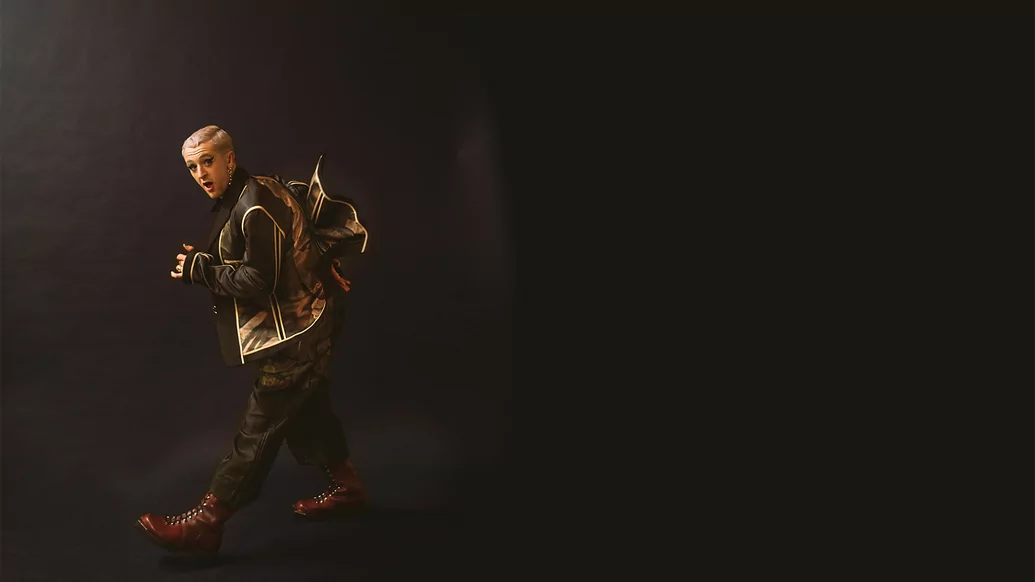

Take the opening song of his main set at Printworks: Queens Of The Stone Age’s ‘You Think I Ain’t Worth A Dollar, But I Feel Like A Millionaire’. It’s a title that resonates for someone who has spoken openly about struggles with depression, and whose latest record is about “drugs, addiction, self-destruction, trust, the music industry, and the classic punk attitude towards that kind of shit”. The opening satirical voiceover of the Queens Of The Stone Age’s song — ‘Clone radio, we play the songs that sound more like everyone else, than anyone else!’ — rings with significance. Denis Sulta’s willingness to embrace music from beyond the house and techno canons is emphatically underlined at Printworks, as the American band’s pummelling guitars and screeching vocals kick in.
The song also soundtracks a favourite film scene of his in xXx, the 2002 action film which stars Vin Diesel as anti-hero Xander Cage. “He’s this bad boy who does really extreme shit but gets away with it because he’s an extreme sports star. It’s so funny,” he says with a gleeful grin, chuckling as he recounts Kane’s outfit of a fur coat over a white vest. “There’s a scene where he has to steal 10 cars. The intro is one of the most captivating riffs I’ve ever heard,” he remembers, on the imprint the song left on his teenage mind. “I wanted to show people the alternative selections I sometimes get pigeonholed or chastised for are fun or nostalgic. They either make you go, ‘What the fuck’s he doing?’ Or, ‘Wow!’ Either way, fundamentally that’s what a good piece of art does.”
Everybody Feeling
Vin Diesel is not usually mentioned in the same breath as art, but Hector’s success is built on his understanding that being a DJ is not about being cool for cool’s sake, it’s about getting ‘everybody feeling’ — a phrase that rang out across dancefloors last year on Misiu’s Secret Squirrel edit of Eddy Grant’s ‘Nobody’s Got Time’, and which Hector sings on ‘Welcome, To The Rest Of My Life’, the last track on his EP. As Denis Sulta, he’s been getting away with extreme shit because it’s exhilarating to be part of, and leaves fans wondering what he’ll do next.
Growing up in the Anniesland area of Glasgow, music was always around. Hector’s dad has two music degrees, introduced him to disco, and made a music documentary about one of the city’s best-known pop bands, Del Amitri. “I love Del Amitri,” he says in a low, suddenly serious voice. The band’s song ‘Roll To Me’ conjures up a romantic vision of his dad as a young man, a ‘teuchter’ whose family is from Perth. His mum is Muriel Gray, who, among many achievements, presented ’80s TV programme The Tube, interviewing singers such as Siouxsie Sioux, and helped build the Vic Bar, where he had his revelatory dance music experience.
His first calling was to be a visual artist, though. Hector was inspired by Francis Bacon, the artist and Soho bon viveur whose inner darkness and discontent, partly stemming from his struggles with being gay in a country where homophobia was written into law, chimed with Hector’s own inner struggles, with “the concept of not feeling OK about yourself around other people”. One day, he realised that no matter how hard he would try to perfect his work, the reception to it is largely out of his hands. “You put it on a wall, then other people’s validation decides how important or how good it is, despite the fact so much of that is subjective.”
“I just sat in my room and banged out the most mental shit in my cabin of a room and smoked 30 fucking Amber Leaf rollies a day. Never washed my clothes, just absolutely lived a life of squalor”
With a marathon runner father and a mountain climbing mother, Hector also developed a passion for the outdoors, focusing on skiing. One day on Glasgow’s dry slope, Hector remembers seeing “this guy ski past me going backwards with no poles, go off a jump and do a full backflip, but under himself, and land”. This real life Xander Cage was Cal Sandieson, a future British Ski Slopestyle Champion, and the two became friends, with Hector determined to become a freestyle skier.
It was Cal’s dad, Wilba, co-owner of Glasgow’s Rubadub, a record and dance music equipment shop, who put him on his current path. One ski season in Livigno, Italy, when Hector was on the verge of his twenties, the three stayed in a virtually deserted complex. “This was when I realised drinking was actually quite a good laugh,” he says, explaining that it had been frowned on at home.
He and Wilba found an empty room with a speaker system and hosted an attempt at a party that turned into “me and Wilba drinking an entire bottle of Laphroaig whisky, then having a quarrel about something. I don’t really remember the rest of the night.” When Hector woke up physically sore in the morning, and went to breakfast, a bright-eyed Wilba welcomed him to the family and told him to call him when he got back home. “That was my job interview.”
For someone who’d never heard of Drexciya or played vinyl, and was into moombahton and hip-hop like Big Pun, Juelz Santana and Dipset, starting at Rubadub was an introduction to hardened record shop attitudes. “Are you actually from Glasgow? That was the mentality.” But it was also an education. He learned how to talk to people and mix vinyl. Wilba first visited Detroit in 1994 to buy records and build connections, so DJs from Detroit would always pass through. And it was also where he experienced the true Glaswegian taste for partying when, as the new boy, he was booked to work the day after Rubadub celebrated its 20th anniversary with Chicago’s Virgo 4.
“The parties used to continue on in the shop, and I mean continue. I was standing there, so naïve, waiting for my boss to turn up. Then the shutters start opening and 40 people walk out.” It was a sink or swim environment that steeled him for the challenges ahead. “That man is good at testing your ability — either do it, or fuck off,” he says of Wilba’s straightforward attitude, one that has helped build Rubadub’s worldwide reputation. “The thing is, I can do it, and I can do anything. He made me feel like that.”
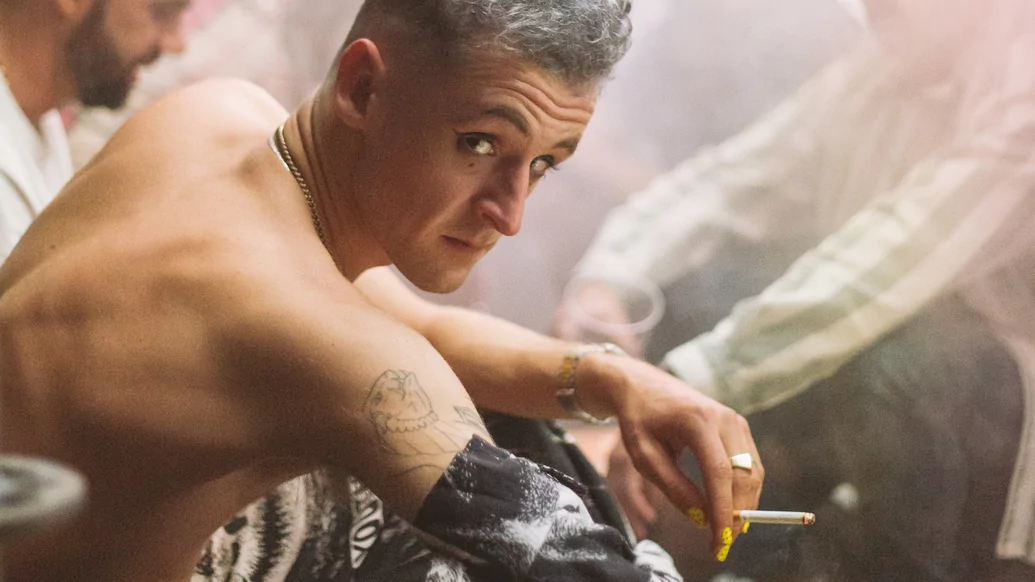
Atlas
Making music aged 20 led to aborted attempts at Edinburgh University, where he studied engineering, then product design. With self-deprecating humour, Hector shines a light on the singular drive that was emerging. “It’s a time in life when you get supported by the government and by your parents, because you’re doing something that could benefit your future. You learn what it’s like to have a place on your own. You learn how to be sociable and party and meet girls, or meet guys. You just do your own thing.
“But I didn’t,” he switches with a dark laugh. “I just sat in my room and banged out the most mental shit in my cabin of a room and smoked 30 fucking Amber Leaf rollies [cigarettes] a day. Never washed my clothes, just absolutely lived a life of squalor. That also happens at university.”
Before Sulta, there were other incarnations. Atlus, a deliberate misspelling of the Greek god so it would be easier to find on Google searches, would eventually become Sulta, a more techno-focused alias. “When I realised there was this guy who held the world on his shoulders,” he says, suddenly switching into a teenage stoner voice, “Shit, that’s pretty deep man.” An atlas compass tattoo on his shoulder shows how deeply he related to it though, searching for a sense of direction.
There was also Conrad Black, a hip-hop alias whose deft touch for emotionally charged synths echoes through Denis Sulta’s melodies, like the glorious swell at the end of ‘Gas Whillis (While I Paint My Nails)’ on his new EP. “I wanted to make music that was like Hudson Mohawke. To this day, I don’t know anyone who’s as interesting as him, he’s my hero,” he declares. He plays Hudson Mohawke’s spine-tingling 2009 track ‘Fuse’ off his phone. “I used to play in the National Youth Orchestra of Scotland, so I love the symphonic quality [of ‘Fuse’]. His music sounds huge, fun and beautiful.”
It was 2015’s ‘LA Ruff Garden’ on Dixon Avenue Basement Jams, the hugely supportive Glasgow label that put out his first release and helped him start his Sulta Selects imprint, when he felt he’d come close to this quality. “It’s what it’s like to sit on the roof of my parents’ house on a cold, dark night and look out over a city that’s so empty and miserable,” he explains, having finally written a record to get ‘everybody feeling’. “Any good piece of music, the instant you hear it in a record store...” He mimes dropping a needle across a record in a few places. “You buy it based on a three-second clip.” A year later, he’d won Best Breakthrough Producer at the DJ Mag Best Of British Awards.
“I love dressing up and making myself look fabulous, because why wouldn’t you want to look fabulous? It feels good”
“I write music, that’s what I do, it’s my language,” he says, downplaying his eloquence and candour. “I learned how to be an entertainer afterwards.” But his career as a DJ has been as hard worked as his reputation as a producer. There have been pivotal public moments — 2015’s Boiler Room at Sub Club with Dixon Avenue Basement Jams, another in 2017 for AVA Festival — but there was also lots of chipping away at the coalface, DJing and helping put on various unsung parties.
In the early days of Rubadub there was Freaky Freaky, a hip-hop night at The Art School with Sam Murray, and Too Nice, another hip-hop party that brought Yung Lean to Glasgow, which he put on with friends Elliot McIntosh, Joshua Hannah, Robbie Anderson and Daniel Hannah. He also co-ran a Thursday night party at the now-shut Chambre 69, playing 130bpm hip-hop such as Waka Flocka Flame’s ‘Hard In The Paint’, alongside Mathew Craig and Ralph Thompson, “two very important people who taught me a lot about DJing”.
Hector is meticulous about naming names because these people were instrumental in his early days, but there also seems to be a common theme. “They always say, when you work with friends you lose one of two things: either money or friends.” In his case, it was sometimes both. Weekly Tuesday night party I AM at Sub Club, however, felt like “one of the only families that had my back”. They gave him his first gig in the local institution. “I finished the night off. The last song I played was Skrillex’s remix of Avicii’s ‘Levels’. I came out of the booth and danced with the people on that floor and had a brilliant time.” It’s a gratitude that’s not been forgotten: promoter and DJ Ross Anderson, now head booker of Glasgow’s The Berkeley Suite and one half of production duo Brain Dancing, supported him at Glasgow’s Barrowlands on his 2019 Scottish tour.
Hard Times
His DJing really converged with the house and techno sound he was making when he became fully involved with Fly, a party run by Tom Ketley in Edinburgh. It was around this time he was approached outside Sub Club by Ben Martin from Elastic Artists, who began getting Hector gigs across Scotland, Ireland and the UK, plus his first abroad, Florence’s Tropical Animals. When Elastic went bust, Martin made a personal assurance to his artists he’d pay them what he owed and followed it through, starting a new Field Agency to keep things rolling. “That’s pretty fucking cool,” says Hector, in contrast to how some of Elastic’s artists were left feeling.
Around the same time, though, Hector started to go off the rails. “I was DJing around town, making about £300 a week and spending £290 on alcohol and drugs and the other £10 on microwave meals.” His relationship with Rubadub also nearly ended, after giving himself an extra day off on the rota to see Jeff Mills play at Bloc for his birthday. He ended up moving into a bedsit, working the occasional shift at Rubadub, at JD Sports and as a kitchen porter at Max’s, the bar above the club Le Cheetah.


Living in a room with just a mattress, an artist’s desk his parents bought him for Christmas and a pair of Genelec speakers, it sounds grim, but it was where he wrote some of his breakthrough tracks, including ‘Nein Fortiate’ and ‘Our World (With A Boy On Its Shoulders)’.
“I played it to people at Rubadub and they didn’t give a fuck,” he remembers. “It’s very hard to get any real compliments from people in Glasgow. It’s not a place that likes to encourage success. It likes to encourage coming back down to earth.” Listening to the latter track in the studio of Glasgow hip-hop producer Sami Omar, he got a different take, though. “He went, ‘Hector, this is one of the most exciting bits of electronic music I’ve ever heard. At some point you have to come to terms with the fact that you created this. You’re going to have to open that door, hit export and take control’.”
The bedsit days are not a period he often talks about, but they were formative in shaping him as an artist. “It taught me how to deal with money. When you’re young you reach a point where you think, ‘Can I be self-sufficient?’ I found out how it feels to be totally flat on your arse,” he says, recalling he once had to sell his iPhone to afford the train to go play Fly. “At that point I knew what it felt like, and started working harder.”
Dedication
Sulta Selects ran for one year only, in 2017, with three releases that mirror the famous triptychs of Francis Bacon. After that, he started Sulta Selects Silver Service. “Scottish people are quite dark, believe it or not,” he laughs, when we point out an apparent disconnect between Bacon’s darkness and the celebratory nature of much of Denis Sulta’s music. “I swear, I’m also a very dark person. Darkness is part of why the light is so good.” It was the light that shone out of his final Sulta Selects record, ‘D_K_Y (But I Do)’ warping Thelma Houston’s epic ‘Don’t Know Why I Love You’ into a pure peak-time stomper.
It seems success was assured after this, but there was still a nagging doubt that he didn’t have what it takes for the biggest gigs. He credits meeting Sarah, his manager from Locket Management — who also manage Annie Mac and Mella Dee — for building his confidence. If she said she could make something happen, it would — and it has, time and time again. But Hector also worked to improve as a DJ, technically and mentally, and would turn down gigs (like his first offer to play Solomun +1 at Pacha as he thought it was too early in his career, but then he played the following summer).
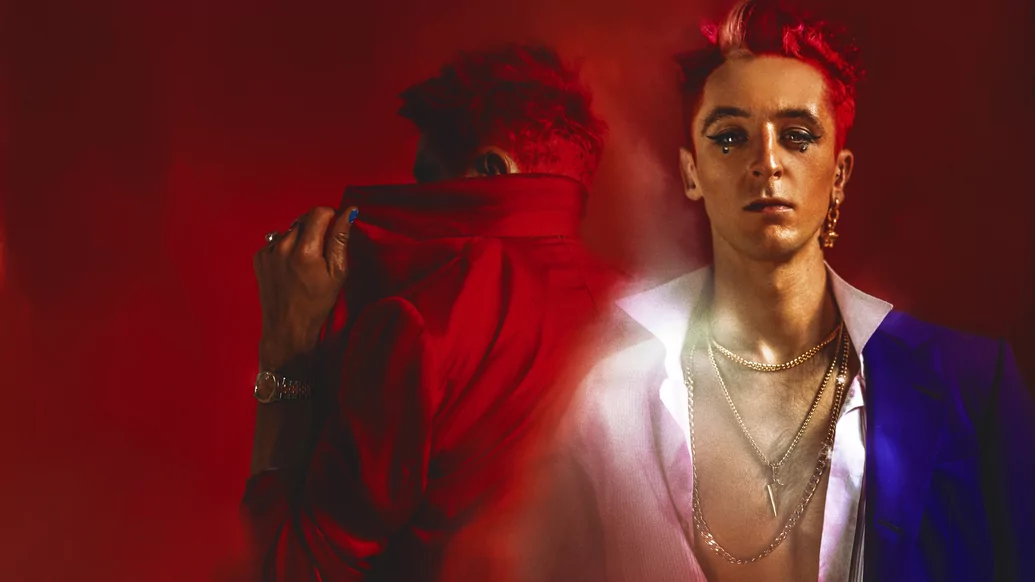
The sound and look of ‘Aye Spoake Te Sumwuhn & They Listenhd’ feels like another new phase for him. Sonically, it had the fluidity and unpredictability of a current Denis Sulta DJ set, unafraid to use turntable effects — loops, delay, spin-backs — to launch off in new directions. The cover image, shot by Haris Nukem, shows two versions of Sulta, one hiding his face — the depressive shying away from his potential, the other facing the camera with a fixed gaze, the confident young man looking to his future. The androgynous look was inspired by artists such as Steve Strange and Boy George, and is partly a counter to the pervasive laddishness in electronic music.
“To me, it’s never been very exciting or attractive,” he says. “I love dressing up and making myself look fabulous, because why wouldn’t you want to look fabulous? It feels good.” He identifies as straight, but says who knows who you’ll be attracted to. Emotionally, he’s had “intimate relationships with people that have been so meaningful, across the board”. The track ‘Dan (wll SOME day KNOW How Special He Makes Me Feel)’ was written after a post-gig chat with Daniel Avery, someone he looks up to as a big brother.
“We were in Sydney, talking about the emptiness you feel after everyone fucks off after a party. What’s left when the laughter dies down? It’s the sound of your own eyes pinging inside your head.” This is the ultimate theme of the record: navigating the music industry at a time when things were “moving too fast”, and there were painful events in his personal life.
We follow up our face-to-face meeting with a call to Miami, where Hector is on tour. He explains that this period of difficulty was around a year ago, and that he’s more rested now. The EP isn’t a cry for help, though, as some have interpreted. “You can probably hear it in my voice man, I’m feeling pretty chirpy,” he tells us. In some ways, being on tour has actually helped him slow down, with little temptation to try and fit five different meetings or social engagements into one day.
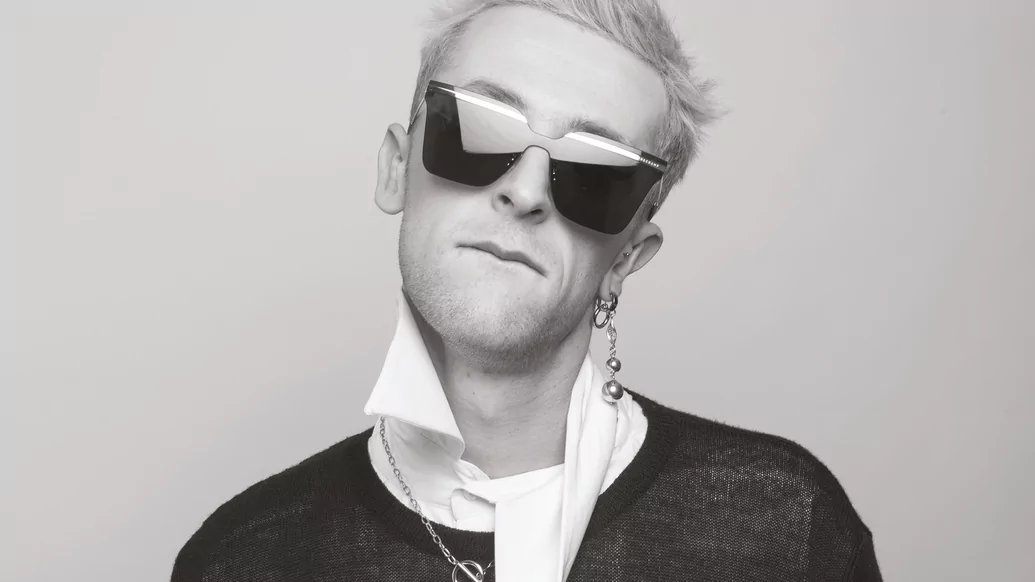

This honesty about his difficulties and successes, and his honesty and relatability as a DJ and producer, seem to come from a feeling of being grounded, his feet firmly on the earth even as he jets around the world. In early 2020, he tours Australia, New Zealand and Asia, but will then take a month-long holiday, spending two weeks in the South Pacific, then two weeks rediscovering his love of skiing.
We ask if he has anything else to add, a moment when artists normally plug their next big project. But his is an expression of gratitude. “I just want to say a big thank you to my mum and my dad; they’ve been through everything with me, and my little brother and sister. We’re a crazy little family unit but I love them all very much. Everything that’s happened to me over the last couple of years has been fucking mental and I wouldn’t change it for the world.”
Winning Best DJ at the DJ Mag Best Of British Awards isn’t just an achievement for him. It’s a validation of support. “I can’t quite believe it to be honest. I’ve dreamt of winning this award ever since I knew of its existence and to be able to take home something to show my family is going to be a tearjerker. Thank you to everyone who voted and DJ Mag for the support. Basically, fucking yas!”
With that, the Xander Cage of DJing is off, causing mayhem wherever he goes and looking ever more fabulous while doing it.

